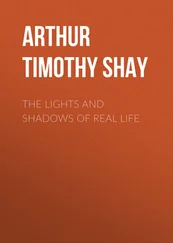Владимир Набоков - The Real Life of Sebastian Knight
Здесь есть возможность читать онлайн «Владимир Набоков - The Real Life of Sebastian Knight» весь текст электронной книги совершенно бесплатно (целиком полную версию без сокращений). В некоторых случаях можно слушать аудио, скачать через торрент в формате fb2 и присутствует краткое содержание. Жанр: Классическая проза, на английском языке. Описание произведения, (предисловие) а так же отзывы посетителей доступны на портале библиотеки ЛибКат.
- Название:The Real Life of Sebastian Knight
- Автор:
- Жанр:
- Год:неизвестен
- ISBN:нет данных
- Рейтинг книги:5 / 5. Голосов: 1
-
Избранное:Добавить в избранное
- Отзывы:
-
Ваша оценка:
- 100
- 1
- 2
- 3
- 4
- 5
The Real Life of Sebastian Knight: краткое содержание, описание и аннотация
Предлагаем к чтению аннотацию, описание, краткое содержание или предисловие (зависит от того, что написал сам автор книги «The Real Life of Sebastian Knight»). Если вы не нашли необходимую информацию о книге — напишите в комментариях, мы постараемся отыскать её.
The Real Life of Sebastian Knight — читать онлайн бесплатно полную книгу (весь текст) целиком
Ниже представлен текст книги, разбитый по страницам. Система сохранения места последней прочитанной страницы, позволяет с удобством читать онлайн бесплатно книгу «The Real Life of Sebastian Knight», без необходимости каждый раз заново искать на чём Вы остановились. Поставьте закладку, и сможете в любой момент перейти на страницу, на которой закончили чтение.
Интервал:
Закладка:
Vladimir Nabokov
The Real Life of Sebastian Knight
1
Sebastian Knight was born on the thirty-first of December 1899, in the former capital of my country. An old Russian lady who has for some obscure reason begged me not to divulge her name, happened to show me in Paris the diary she had kept in the past. So uneventful had those years been (apparently) that the collecting of daily details (which is always a poor method of self-preservation) barely surpassed a short description of the day's weather; and it is curious to note in this respect that the personal diaries of sovereigns – no matter what troubles beset their realms – are mainly concerned with the same subject. Luck being what it is when left alone, here I was offered something which I might never have hunted down had it been a chosen quarry. Therefore I am able to state that the morning of Sebastian's birth was a fine windless one, with twelve degrees (Rйaumur) below zero… this is all, however, that the good lady found worth setting down. On second thought I cannot see any real necessity of complying with her anonymity. That she will ever read this book seems wildly improbable. Her name was and is Olga Olegovna Orlova – an egg-like alliteration which it would have been a pity to withhold.
Her dry account cannot convey to the untravelled reader the implied delights of a winter day such as she describes in St Petersburg; the pure luxury of a cloudless sky designed not to warm the flesh, but solely to please the eye; the sheen of sledge-cuts on the hard-beaten snow of spacious streets with a tawny tinge about the middle tracks due to a rich mixture of horse-dung; the brightly coloured bunch of toy-balloons hawked by an aproned pedlar; the soft curve of a cupola, its gold dimmed by the bloom of powdery frost; the birch trees in the public gardens, every tiniest twig out., lined in white; the rasp and tinkle of winter traffic… and by the way how queer it is when you look at an old picture postcard (like the one I have placed on my desk to keep the child of memory amused for a moment) to consider the haphazard way Russian cabs had of turning whenever they liked, anywhere and anyhow, so that instead of the straight, self-conscious stream of modem traffic one sees – on this painted photograph – a dream-wide street with droshkies all awry under incredibly blue skies, which, farther away, melt automatically into a pink flush of mnemonic banality.
I have not been able to obtain a picture of the house where Sebastian was born, but I know it well, for I was born there myself, some six years later. We had the same father: he had married again, soon after divorcing Sebastian's mother. Oddly enough, this second marriage is not mentioned at all in Mr Goodman's Tragedy of Sebastian Knight (which appeared in 1936 and to which I shall have occasion to refer more fully); so that to readers of Goodman's book I am bound to appear non-existent – a bogus relative, a garrulous impostor; but Sebastian himself in his most autobiographical work (Lost Property) has some kind words to say about my mother – and I think she deserved them well. Nor is it exact, as suggested in the British Press after Sebastian's decease, that his father was killed in the duel he fought in 1913; as a matter of fact he was steadily recovering from the bullet-wound in his chest, when – a full month later – he contracted a cold with which his half-healed lung could not cope.
A fine soldier, a warm-hearted, humorous, high-spirited man, he had in him that rich strain of adventurous restlessness which Sebastian inherited as a writer. Last winter at a literary lunch, in South Kensington, a celebrated old critic, whose brilliancy and learning I have always admired, was heard to remark as the talk fluttered around Sebastian Knight's untimely death: 'Poor Knight! he really had two periods, the first – a dull man writing broken English, the second – a broken man writing dull English.' A nasty dig, nasty in more ways than one for it is far too easy to talk of a dead author behind the backs of his books. I should like to believe that the jester feels no pride in recalling this particular jest, the more so as he showed far greater restraint when reviewing Sebastian Knight's work a few years ago.
Nevertheless, it must be admitted that in a certain sense, Sebastian's life, though far from being dull, lacked the terrific vigour of his literary style. Every time I open one of his books, I seem to see my father dashing into the room – that special way he had of flinging open the door and immediately pouncing upon a thing he wanted or a creature he loved. My first impression of him is always a breathless one of suddenly soaring up from the floor, one half of my toy train still dangling from my hand and the crystal pendants of the chandelier dangerously near my head. He would bump me down as suddenly as he snatched me up, as suddenly as Sebastian's prose sweeps the reader off his feet, to let him drop with a shock into the gleeful bathos of the next wild paragraph. Also some of my father's favourite quips seem to have broken into fantastic flower in such typical Knight stories as Albinos in Black or The Funny Mountain, his best one perhaps, that beautifully queer tale which always makes me think of a child laughing in its sleep.
It was abroad, in Italy as far as I know, that my father, then a young guardsman on leave, met Virginia Knight. Their first meeting was connected with a fox-hunt in Rome, ill the early nineties, but whether this was mentioned by my mother or whether I subconsciously recall seeing some dim snapshot in a family album, I cannot say. He wooed her long. She was the daughter of Edward Knight, a gentleman of means; this is all I know of him, but from the fact that my grandmother, an austere and wilful woman (I remember her fan, her mittens, her cold white fingers), was emphatically opposed to their marriage, and would repeat the legend of her objections even after my father had been married again, I am inclined to deduce that the Knight family (whatever it was) did not quite reach the standard (whatever that standard might have been) which was required by the redheels of the old rйgime in Russia. I am not sure either whether my father's first marriage did not clash somehow with the traditions of his regiment – anyway his real military success only began with the Japanese war, which was after his wife had left him.
I was still a child when I lost my father; and it was very much later, in 1922, a few months before my mother's last and fatal operation, that she told me several things which she thought I should know. My father's first marriage had not been happy. A strange woman, a restless reckless being – but not my father's kind of restlessness. His was a constant quest which changed its object only after having attained it. Hers was a half-hearted pursuit, capricious and rambling, now swerving wide off the mark, now forgetting it midway, as one forgets one's umbrella in a taxicab. She was fond of my father after a fashion, a fitful fashion to say the least, and when one day it occurred to her that she might be in love with another (whose name my father never learnt from her lips), she left husband and child as suddenly as a raindrop starts to slide tipwards down a syringa leaf. That upward jerk of the forsaken leaf, which had been heavy with its bright burden, must have caused my father fierce pain; and I do not like to dwell in mind upon that day in a Paris hotel, with Sebastian aged about four, poorly attended by a puzzled nurse, and my father locked up in his room, 'that special kind of hotel room which is so perfectly fit for the staging of the worst tragedies: a dead burnished clock (the waxed moustache of ten minutes to two) under its glass dome on an evil mantelpiece, the French window with its fuddled fly between muslin and pane, and a sample of the hotel's letter paper on the well-used blotting-pad'. This is a quotation from Albinos in Black, textually in no way connected with that special disaster but retaining the distant memory of a child's fretfulness on a bleak hotel carpet, with nothing to do and a queer expansion of time, time gone astray, asprawl….
Читать дальшеИнтервал:
Закладка:
Похожие книги на «The Real Life of Sebastian Knight»
Представляем Вашему вниманию похожие книги на «The Real Life of Sebastian Knight» списком для выбора. Мы отобрали схожую по названию и смыслу литературу в надежде предоставить читателям больше вариантов отыскать новые, интересные, ещё непрочитанные произведения.
Обсуждение, отзывы о книге «The Real Life of Sebastian Knight» и просто собственные мнения читателей. Оставьте ваши комментарии, напишите, что Вы думаете о произведении, его смысле или главных героях. Укажите что конкретно понравилось, а что нет, и почему Вы так считаете.













the net the easiest thing to be aware of.
I say to you, I certainly get annoyed whilst people
think about worries that they plainly don't recognize about.
You controlled to hit the nail upon the highest and defined out the whole thing without having side-effects , other folks can take a signal.
Will likely be back to get more. Thank you